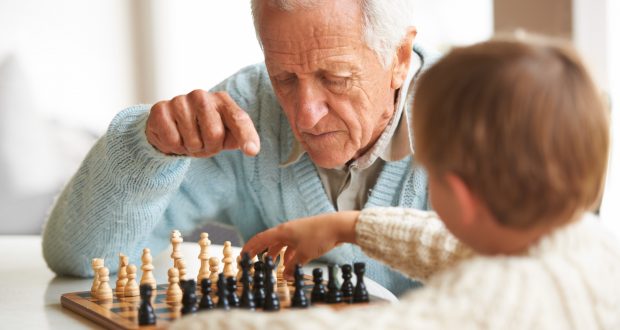Ageism is ubiquitous worldwide, with every second person holding ageist attitudes, according to a new WHO report on ageism.
Ageism seeps into many institutions and sectors of society including those providing health and social care, in the workplace, media and the legal system, the report holds, and urgent action is needed to address the problem.
The report looked at ways ageism, against young and old alike, affects society and found that it leads to poorer physical and mental health and reduced quality of life for older persons while ageism against younger people can appear in areas such as employment, health, housing and politics where younger people’s voices are often denied or dismissed.
“As countries seek to recover and rebuild from the pandemic, we cannot let age-based stereotypes, prejudice and discrimination limit opportunities to secure the health, well-being and dignity of people everywhere,” said Dr Tedros Adhanom Ghebreyesus, WHO Director-General.
“This report outlines the nature and scale of the problem but also offers solutions in the form of evidence-based interventions to end ageism at all stages.”
At what cost?
The research found that healthcare rationing based solely on age is widespread and ageism can dictate what and who received certain medical treatments.
In the US, ageism led to excess annual costs of US$63 billion for the eight most expensive health conditions.
This equates to US$1 in every US$7 spent on these conditions for all Americans over the age of 60 for one year.
Older adults also tend to be excluded from health research, even though they share a disportionate burden of disease and use of medicines.
One study found evidence of ageism in all 49 studies that investigated the link between age and exclusion from different types of health research. This showed that older persons were systematically excluded from clinical trials in cardiology, internal medicine, nephrology, neurology, preventive medicine, psychiatry, rheumatology, oncology and urology, even though many of the conditions under study are more prevalent in old age.
The report highlights the struggle older people face in the workplace and the cost that places on many nations.
One study found that employers were less likely to hire older applicants than younger applicants; that once employed, older workers had less access to training; and that those who faced ageism in the workplace were more likely to retire early.
In Australia, the report shows that if 5 per cent more people aged 55 or older were employed, there would be a positive impact of AUD$48 billion on the national economy annually.
Overall, it is estimated that 6.3 million cases of depression globally are estimated to be attributable to ageism.
In Europe (the only region for which the WHO received solid data) one in three report having been a target of ageism, and younger people report more perceived age discrimination than other age groups.
Ageism intersects and exacerbates other forms of bias and disadvantage including those related to sex, race and disability leading to a negative impact on people’s health and well-being, WHO says, and among older people, ageism is associated with poorer physical and mental health, increased social isolation and loneliness, greater financial insecurity, decreased quality of life and premature death.
“The pandemic has put into stark relief the vulnerabilities of older people, especially those most marginalized, who often face overlapping discrimination and barriers – because they are poor, live with disabilities, are women living alone, or belong to minority groups,” said Natalia Kanem, Executive Director, United Nations Population Fund.
“Let’s make this crisis a turning point in the way we see, treat and respond to older people, so that together we can build the world of health, well-being and dignity for all ages that we all want."
The report outlines three strategy areas which have been shown as effective in fighting ageism; policy and law, educational activities and intergenerational contact interventions.
And outlines three recommendations for action.
- Invest in evidence-based strategies to prevent and tackle ageism
- Improve data and research to gain a better understanding of ageism and how to reduce it
- Build a movement to change the narrative around age and ageing.
“Ageism harms everyone – old and young. But often, it is so widespread and accepted – in our attitudes and in policies, laws and institutions – that we do not even recognize its detrimental effect on our dignity and rights said Michelle Bachelet, United Nations High Commissioner for Human Rights.
“We need to fight ageism head-on, as a deep-rooted human rights violation.”
Do you have an idea for a story?Email [email protected]
 Aged Care Insite Australia's number one aged care news source
Aged Care Insite Australia's number one aged care news source

